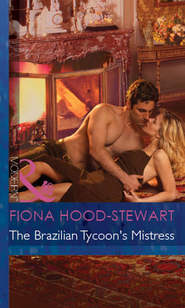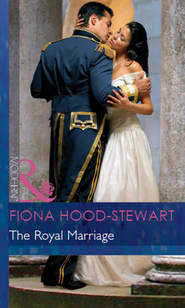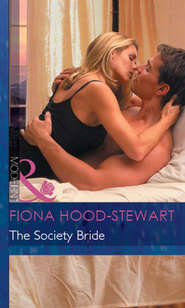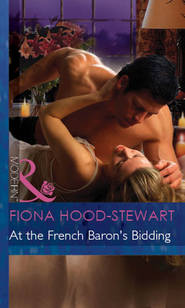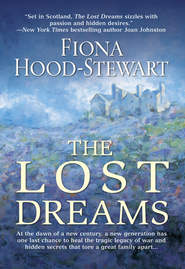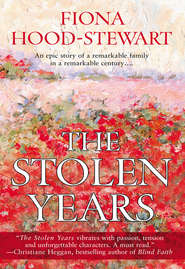По всем вопросам обращайтесь на: info@litportal.ru
(©) 2003-2024.
✖
The Journey Home
Автор
Год написания книги
2018
Настройки чтения
Размер шрифта
Высота строк
Поля
“You’re selling Dunbar?” Jack asked, surprised. When he’d commented to India that Dunbar would be an ideal setting for a hotel, her eyes had darkened, and she’d replied in such withering tones he’d felt like a jerk for allowing the thought to cross his mind.
“Yes, I’ve pretty well decided,” Serena continued. “I’ve no desire to keep it. It’s far too big. The heating bill alone is outrageous, and quite frankly, I’d rather have the money.” She slowed as they slid on a patch of ice. “Whew! That was close,” she remarked. “Awfully slippery out here.”
“When is your mother’s funeral?” he asked casually.
“Tomorrow at two. The burial will be afterward at Cockpen. We’ll probably all freeze to death while the minister blabbers on. He’s such a long-winded old bore.”
Jack tried to conceal his rising disgust. During his life, he’d crossed men and met with situations he’d rather not remember, but rarely had he come across a more self-centered, callous woman. Serena showed none of the sadness India obviously felt at her mother’s passing. Apparently all that concerned Serena was her own well-being, and how she could profit. He glanced sideways at her. The fact that he’d actually slept with this woman—brief, inebriated fling though it had been—filled him with abhorrence.
He tried to forget Serena, and considered the idea that had been taking shape hazily ever since he’d set eyes on the property, and that her words had reignited. He couldn’t help it. He was always picturing places as hotels. His hotels. If Dunbar could be acquired, it would be the perfect addition to the small group of upscale establishments he and Peter were investing in.
“Is your sister interested in selling the property, too?” he asked, casting Serena another sidelong glance. His eyes had gotten used to the dark now, and he tried to distinguish her expression. Something didn’t fly in all this for the two sisters to have such different views on the subject.
“It’s none of her business.”
“What do you mean?”
“I mean, Mummy’s surely left the estate to me. India couldn’t possibly have any interest in it. She’s never spent time there. She already had the property in Switzerland, of course, which is actually worth more and is probably a damn sight easier to sell. It would have been out of the question for her to live at Dunbar.”
“Really, why’s that?” he asked, surprised, remembering India’s rapt expression as she’d shown him the house. She’d seemed enchanted with it, as though it was an important part of her existence.
“You weren’t brought up here so you probably wouldn’t understand. It’s rather difficult to be accepted in these parts if you’re not born into the right milieu. Of course, a foreigner’s very different,” she added, casting him a suggestive smile, “especially a wealthy, eligible one. In America you’re far more understanding of these things, aren’t you? Too understanding if you ask me. That’s why you have all sorts of riffraff mixing with their betters.”
Jack didn’t respond, still wondering what could possibly have induced him to end up with this woman in the Kinnairds’ second guest bedroom a few months back. That’d teach him not to mix his drinks, he reflected somberly. She’d been conveniently there, sexy, in a slinky black dress that did wonders for her figure, and before he’d known it they were on the carpet, Serena pulling off his clothes. And, he had to admit, doing a pretty damn good job. Lady Serena was a pro.
India’s face flashed to mind, and he experienced a sudden burst of discomfort. Two more different women would have been hard to find. On the one hand, India, poised, natural and beautiful—with something more Jack couldn’t put his finger on, but which further acquaintance might reveal. On the other, this obtrusive female who, although she was attractive and sexy, clearly lacked her sister’s quality.
“Are you going to list the property with a broker?” he asked, his mind jumping back to the possibility of acquiring Dunbar.
“Why? Would you be interested?” she asked archly.
“I could be…if the numbers were right.”
Serena glanced at him. “Why don’t you come over one day before you leave and take a look around.”
“Okay. Sounds like a good idea. If you could have some specs on hand—you know, information about the property, plans and so on, it’d be helpful.”
“Of course, I’ll see to it. When are you leaving?”
“I’ll be away for a couple of days, but I’ll be back on Saturday.”
“Fine. I’ll give you a ring or you can call me. Do you have the number?”
“I’ll find it.”
“When did you say Peter and Di are getting back from Perthshire?” she inquired, the wheels of the Range Rover crunching the freshly fallen snow as they rolled slowly up the drive.
“The day after tomorrow.”
“Good. Give them my love and tell Di I’ll be giving her a buzz.” They stopped at the front door. “You know, we should get together for dinner one night. I make a jolly decent soufflé, and we could think up something terribly exotic for dessert,” she purred, looking him over greedily.
Jack gave an inner shudder and opened the door of the vehicle. “Good night, Serena. Thanks for the ride. How do I get the dogs out?”
“It’s unlocked, just press the button,” she said, revving up the engine crossly.
Jack went to the back of the car, opened the hatch, letting the dogs loose, and picked up his gun. The snow was falling so thick that by the time he reached the front door he was covered.
Jack realized he was hungry after his day in the fresh air, even after the scones at tea. He cleaned his gun, then changed into more comfortable garb, all the while pondering the possibilities of Dunbar. He had a strange feeling about the place. Deep down, he just knew it could work. If the numbers were right and the specs were what he imagined they might be, this could be the gem he’d been searching for.
He slipped on a pair of loafers and wandered down the passage to the kitchen in search of Mrs. MacClean, the Kinnaird family’s housekeeper for over twenty-five years. Dunbar could wait; dinner, on the other hand, could not.
He opened the door and watched as Mrs. MacClean bustled happily about her business, unperturbed by the old-fashioned kitchen, not bothered by drawbacks that, by American standards, would be considered archaic. Jack guessed she’d probably protest vehemently if any changes were suggested.
She glanced up from the oven with a broad smile. “Och, here ye are, Mr. Jack. I was about to call ye fer yer dinner. It’ll be ready in just a wee while. I’ll get the table set.”
Jack stopped her. “If you don’t mind, Mrs. MacC., I’ll just eat in here tonight. Will you keep me company?” he asked with a winning smile.
“Lonely are ye, dearie? Well, all right. I’ll set the table in here fer ye. I won’t be half a tick.” She laid her oven gloves on the counter and extracted a table mat with a faded hunting scene and heavy silver cutlery from the cumbersome drawer below the kitchen table.
Jack leaned against the counter, savoring the delicious smell of roast lamb that filtered from the large Aga oven, and relaxed, enjoying the scene. He usually ate in restaurants or in one of the hotels. And when he was home at the penthouse in Miami—which was rarely—he ordered takeout. He recalled a time when he’d enjoyed eating in, way back in the days when Lucy was alive and they were two kids, playing at keeping house. She’d loved French cooking. It was ironic that, at the present stage of his existence, he’d eaten enough fancy French food to last him a lifetime.
He sighed. The memories and the what-might-have-beens were so present today. Time had not faded her image or blotted out the sweet moments of his early youth. He rarely allowed himself to unlock the safe within his soul, because when he did, the thoughts of Lucy were still so vivid they hurt. He could almost reach out and touch her soft golden hair, and lose himself in those blue eyes he’d loved so well.
Sometimes, but not often, he let himself think about their life together, how they’d fought to get married when everyone had told them they were too young, and how glad he was that they had. There had been so much young love, so many hopes and expectations. Ironically he had fulfilled most of them. Alone. Now he owned all the material things they’d dreamed of possessing, had traveled to all the places they’d conjured up as they cuddled under the covers in the little frame house that Jack had proudly put the down payment on with money he’d earned working nights and summers while his friends were goofing around or dating girls. But for him it had always been different. Ever since fifth grade he’d known he wanted to marry Lucy, just as she had him.
Then in one horrifying instant everything had changed. Lucy never saw the truck speeding toward her on the icy snow-covered road. And from then on his life had become an empty place. At twenty-two he had stood by her grave, a devastated young widower bereft of his child bride and the baby she was carrying. Overnight the boy became a man, bearing pain that only years of determination and discipline would teach him to handle.
“There ye go. We’re just about ready. Sit yersel’ doon, Mr. Jack, while I get the roast out of the oven fer ye.”
Jack snapped back to his present surroundings, startled by Mrs. MacC.’s voice.
He sat down at the table and thought of India, with her exotic name, her high-bred British accent and her green eyes that changed constantly, like a kaleidoscope. She’d seemed so vulnerable perched on that tree stump, with her knees tucked under her chin, staring at him warily and wrinkling her nose at the whiskey. She’d made him think of a woodland elf, yet that same instant, he’d envisioned her draped on a sofa in a black evening dress, diamonds around her throat and a glass of champagne in her hand.
The differences between India and Serena were really quite striking. But Serena’s oblique references to her half sister’s background had left him curious, and he wondered if Mrs. MacClean could be induced to shed some light on the matter.
He knew Dunbar was very special. His intuition never failed him when it came to choosing sites for hotels. In his history as a hotelier he’d made only one mistake, and that was ten years ago, when he was twenty-four and just beginning. Even then he’d salvaged his money.
The possibility of perhaps acquiring Dunbar was increasingly enticing, and he looked forward to getting his hands on the specs and an in-depth look at the property. Of course, the place would need a tremendous overhaul if anything did materialize, but the advantages far outweighed any drawbacks of that nature. Being so near the airport, a half hour’s drive at most, made it easy to include in luxury packages to London.
He wondered if Peter, who was involved in local politics, might think it was too close to home. The locals might be sticky about a hotel. Worst-case scenario, he could go it alone. But it seemed a great fit with everything they already had going, including the Buenos Aires project.
“Here ye go, Mr. Jack,” Mrs. MacClean said, whisking the roast onto the table. “Have yer supper afore it chills. There’s nothing worse than half-cold food. I brought ye the bottle of Burgundy Sir Peter opened. He says it does the wine good te’ be open fer a wee while.”
Jack snapped out of his reverie, picking up the white linen napkin from the old pine table, its patina softened by years of elbows and beeswax. “Sir Peter’s right,” he said, picking up the bottle, reading the label, impressed. “Good red wines usually do benefit from being uncorked for a few hours before they’re consumed.”
“Well, that’s what Sir Peter always says.” Mrs. MacClean looked pleased as she padded back and forth with different items. “Now, are ye all set?” Her small eyes scanned the table critically from above ruddy, weather-beaten cheeks.
“Yeah, thanks, this looks great.” Jack carved a large portion of lamb and poured himself a glass of the Chambertin ’61, raising it reverently to his nostrils, appreciating the strong body yet delicate bouquet. “Sir Peter sure chose a fine bottle, Mrs. MacClean.”






